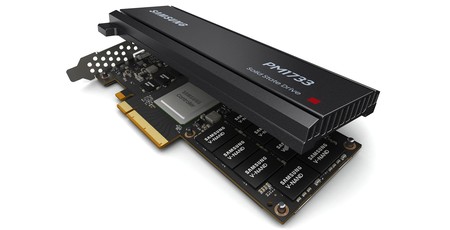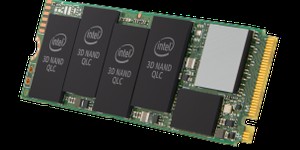
Samsung Electronics has released details of three new software improvements, launching in its enterprise-centric solid state drives, which include the promise of what it calls a 'never-die SSD'
The growth of the solid-state storage market is a two-part process: Progress on the hardware side of things needs to be matched by improvements in software and firmware, and it's the latter that Samsung Electronics claims to have improved for its enterprise customers with the release of three key new features to improve performance and longevity of its highest-end SSDs.
'We are combining breakthrough speeds and capacities with revolutionary software solutions as we accelerate expansion in the premium SSD market,' claims Kye Hyun Kyung, executive vice president of Memory Solution Product & Development at Samsung Electronics. 'We plan to introduce additional innovation led by our most advanced (sixth-generation) V-NAND in helping to trigger a lot more growth in the global IT market.'
The company's three key software features are: Fail In-Place (FIP), which it claims turns an enterprise SSD into a 'never-die' device; integrated virtualisation capabilities; and machine learning technology for high-speed data verification.
FIP, the company claims, 'marks a new milestone in the 60-year history of storage.' A FIP-enabled drive is able to route around faulty NAND chips, creating what the company claims is a 'never-dying SSD.' When a fault is detected in a single chip, the data is scanned for damage and relocated to non-faulty components - effectively a sort of Redundant Array of Independent Chips. It's something which is clearly of most use to enterprise customers buying high-end hardware like Samsung's 30.72TB high-capacity SSDs, which boast 512 individual chips - the failure of any one of which would previously have required replacement of the entire drive.
The virtualisation functionality, meanwhile, allows for an SSD to be divided into up to 64 smaller SSDs for multiple users or virtualised platforms. Better still, it allows for some virtualisation tasks - including Single-Root I/O Virtualisation (SR-IOV) - to be offloaded onto the drive itself, reducing CPU overhead.
Finally, Samsung's V-NAND machine learning software is designed to predict and verify cell characteristics and variation in circuit patterns. The result, the company claims, is improved reliability at high speeds, particularly for the company's top-end 100-layer four-bit V-NAND products - parts which, it admits, require more precise cell control than three-bit NAND.
The first drives to benefit from the new capabilities will be its PCI Express 4.0-based PM1733 and PM1735 SSDs, which entered mass production last month, with additional drives to follow - but, at present, exclusively for the server and data centre market.

MSI MPG Velox 100R Chassis Review
October 14 2021 | 15:04








Want to comment? Please log in.